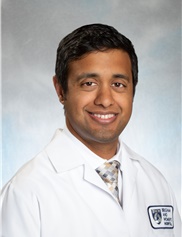Grants Funded
ASPS/PSF leadership is committed to continuing to provide high levels of investigator-initiated research support to ensure that plastic surgeons have the needed research resources to be pioneers and innovators in advancing the practice of medicine.
Research Abstracts
Search The PSF database to have easy access to full-text grant abstracts from past PSF-funded research projects 2003 to present. All abstracts are the work of the Principal Investigators and were retrieved from their PSF grant applications. Several different filters may be applied to locate abstracts specific to a particular focus area or PSF funding mechanism.
Adipocyte-mediated secretion of CCL22 to mitigate secondary lymphedema
Shailesh Agarwal MD
2022
Brigham and Women's Hospital, Inc.
Pilot Research Grant
Tissue Engineering, Other
Impact Statement: Over 5 million patients in the United States have secondary lymphedema. Patients experience limb heaviness, pain, open wounds, and infections. Studies have found a critical role for regulatory T-cells (Treg) in the prevention of secondary lymphedema. Here we develop a strategy to augment Treg recruitment to sites at risk for lymphedema through delivery of C-C motif chemokine ligand 22 (CCL22), a powerful Treg chemoattractant. We test this strategy using exogenous delivery of CCL22, and then proceed with developing a novel cell therapy composed of adipocytes which are capable of producing and secreting CCL22.
Project Summary: Secondary lymphedema is morbid condition characterized by limb swelling due to impaired drainage of lymphatic fluid. Over 5 million patients in the United States have secondary lymphedema due to lymphadenectomy for cancer. Patients experience limb heaviness, pain, open wounds, and infections requiring antibiotics and hospital admission. However, strategies to treat secondary lymphedema can be broadly categorized into non-surgical or surgical options; both remain inadequate. Recently, studies have found a critical role for regulatory T-cells (Treg) in the prevention of secondary lymphedema. Although systemic approaches to augmenting Tregs may appear to be an exciting opportunity against lymphedema, the immunosuppressive qualities of Tregs are not desirable in patients with a history of malignancy. Therefore, a strategy which enables Treg recruitment directed specifically to the site at risk for lymphedema would minimize the immunosuppressive risks associated with systemic Tregs activation in patients with a history of malignancy. To that end, C-C motif chemokine ligand 22 (CCL22) has emerged as a potent mediator of Treg recruitment to sites of inflammation. CCL22 is a secreted peptide which interacts with chemokine receptor 4 (CCR) on the surface of T-cells. Its role in Treg recruitment and differentiation has been demonstrated in a variety of contexts including models of malignancy, tissue injury, and tissue transplantation. In each of these settings, CCL22 has exhibited an immunosuppressive effect, which appears to be secondary to Treg recruitment. As a result, CCL22 delivery presents an appealing strategy to enable targeted Treg recruitment to sites at risk for lymphedema. In Aim 1, we will examine the effect of exogenous CCL22 delivery on the development of secondary lymphedema in a validated mouse model of surgically-induced hindlimb lymphedema. Through support from the PSF, my lab has developed an autologous cell therapy composed of adipocytes which have been genetically-modified in vitro to express desired therapeutic peptides. In Aim 2, we will modify adipocytes with genomic Ccl22 integration using the Sleeping Beauty transposase/transposon system, to allow for long-term durable CCL22 production. Hence, we expect to develop an autologous cell therapy which provides durable CCL22 production to be deployed in secondary lymphedema among other potential clinical contexts.
 Dr. Shailesh Agarwal is an Assistant Professor of Surgery at Harvard Medical School and Associate Surgeon in the Division of Plastic Surgery at the Brigham and Women's Hospital. Dr. Agarwal completed his residency in plastic surgery at the University of Michigan from 2010-2018. During that time, he also completed a 2-year post-doctoral research fellowship studying pathologic wound healing with Dr. Benjamin Levi. Dr. Agarwal completed his microsurgical fellowship at the University of Chicago where he performed microsurgical reconstruction including lymphovenous bypass and vascularized lymph node transfer for patients with secondary lymphedema. At the Brigham and Women's Hospital, Dr. Agarwal performs both microsurgical and implant-based breast reconstruction, lymphedema surgery with vascularized lymph node transfer, LYMPHA for lymphedema prevention, and gender-affirming top and bottom surgery. His laboratory is focused on studying the underlying biology of lymphedema fibroadipose tissue deposition, and in developing adipocyte-based therapies for the local release of therapeutic biologic agents including peptide and microRNA.
Dr. Shailesh Agarwal is an Assistant Professor of Surgery at Harvard Medical School and Associate Surgeon in the Division of Plastic Surgery at the Brigham and Women's Hospital. Dr. Agarwal completed his residency in plastic surgery at the University of Michigan from 2010-2018. During that time, he also completed a 2-year post-doctoral research fellowship studying pathologic wound healing with Dr. Benjamin Levi. Dr. Agarwal completed his microsurgical fellowship at the University of Chicago where he performed microsurgical reconstruction including lymphovenous bypass and vascularized lymph node transfer for patients with secondary lymphedema. At the Brigham and Women's Hospital, Dr. Agarwal performs both microsurgical and implant-based breast reconstruction, lymphedema surgery with vascularized lymph node transfer, LYMPHA for lymphedema prevention, and gender-affirming top and bottom surgery. His laboratory is focused on studying the underlying biology of lymphedema fibroadipose tissue deposition, and in developing adipocyte-based therapies for the local release of therapeutic biologic agents including peptide and microRNA.